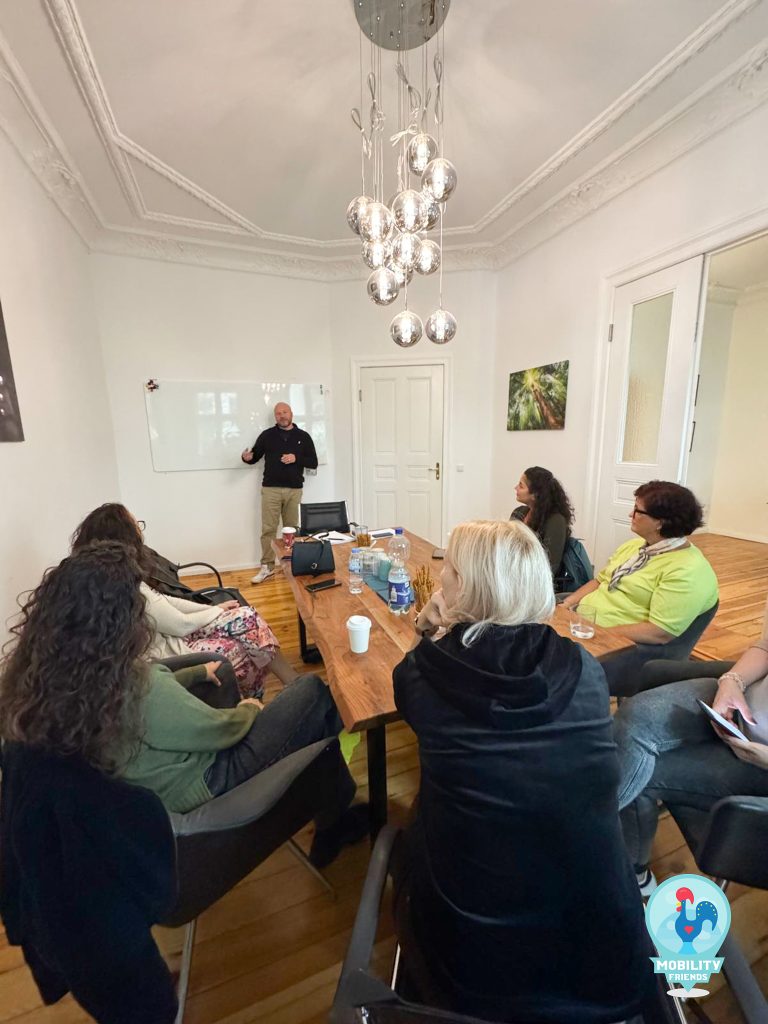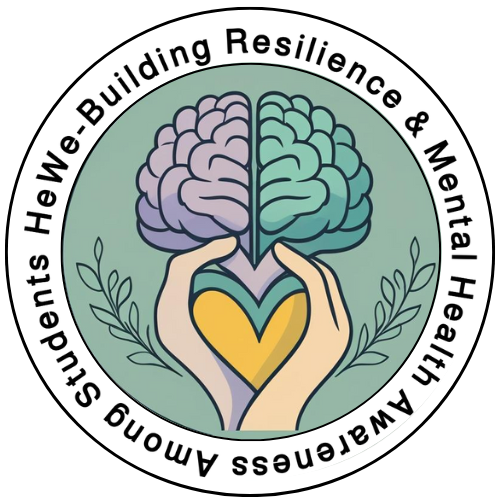The main goal of the project VET Strategic Management – Exchange of Good
Practices and Externalization of Knowledge (VET SM) is to prepare 8 key
institutional stakeholders in the VET sector for the gradual implementation of the
Vocational Education Development Strategy in Eastern Greater Poland and to promote
strategic VET planning solutions in the partnership of 3 transnational VET
organizations.
The objectives include:
- Acquiring knowledge about organization and management in the vocational
education and training sector, particularly career counseling in Portugal and
Germany. - Exchanging experiences on problems and solutions applied in the management
process of the vocational education system at local and regional levels,
considering the European perspective. - Acquiring knowledge about modern promotional tools and their use in the
Vocational Education and Training sector. - Transforming tacit and dispersed knowledge about vocational education and
training systems into a specific educational tool in the form of publications. - Integrating the entities responsible for defining local policy related to the
vocational education and training sector. - Increasing the internationalization of partners.
On our first online meeting with partners from Poland and Germany, the project was presented in detail and the initial questions were clarified.

First TPM and Study Visit
From April 5th to 12th, we had the pleasure of hosting a study visit in Portugal, warmly welcoming our valued partners from Poland and Germany.
The main objective of this activity was to foster the exchange of knowledge and good practices in the field of Vocational Education and Training (VET), with a particular focus on management strategies, dual education, and public-private cooperation.
We were honoured to receive distinguished guests, including the Mayor of Konin, the Presidents of the Konin, Słupca, and Koło districts, and the Secretary of the Turek District. Their active participation added valuable institutional insight and reinforced the importance of connecting educational planning with local governance.
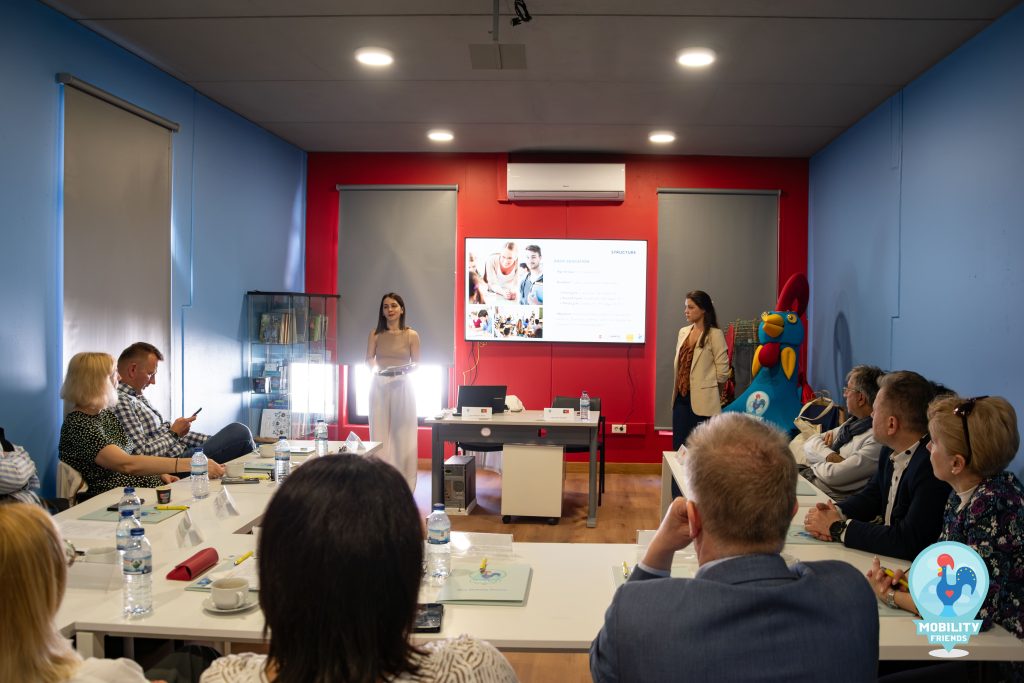
The first two days were dedicated to the Transnational Project Meeting (TPM), where each partner presented the current state of their project activities, discussed challenges and achievements, and aligned next steps. These working sessions were enriched by contextual presentations about the VET systems in Portugal, Germany, and Poland.
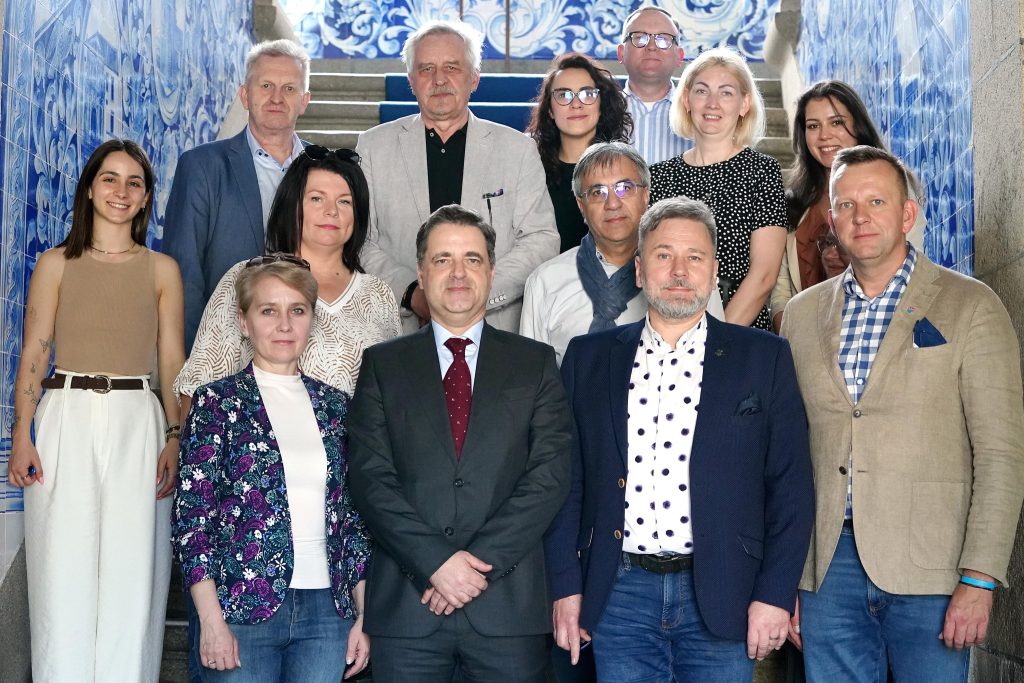
The remaining days focused on the study visit where the participants explored the Portuguese VET system. Highlights included visits to a leading VET school, visits to the local governments of Barcelos and Braga and sessions on teacher training, career development pathways, and the role of municipalities in VET planning, where the group learned more about practical and dual education in Portugal.and innovative approaches to educational programme development.
The visit also had a strong cultural dimension. Our guests enjoyed guided visits to the Bom Jesus do Monte sanctuary in Braga and to the historic centre of Porto, experiencing some of the country’s rich cultural and architectural heritage.
This study visit not only contributed directly to the goals of the VET SM project, namely, the acquisition of knowledge about VET governance in Portugal and the exchange of managerial practices at local and regional levels, but also laid the foundation for stronger transnational cooperation. All participants left with broader perspectives, valuable contacts, and renewed motivation to enhance the VET systems in their own regions.
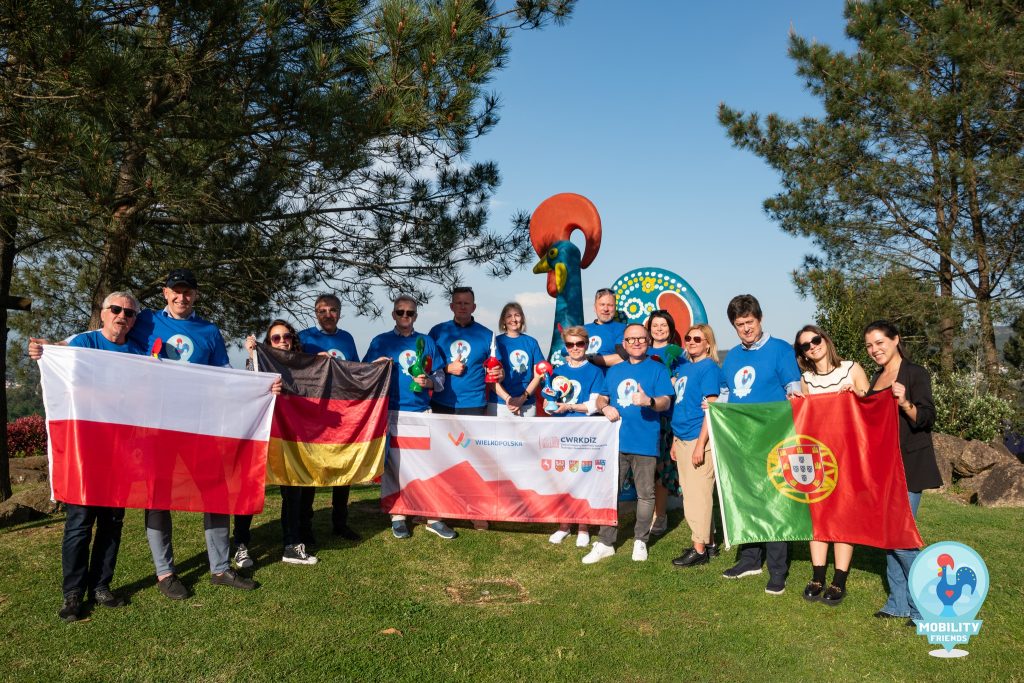
Online Training Session “Social Media for VET”
From May 13th to 15th, we had the pleasure of delivering the online training session “Social Media for VET”, designed to help education professionals improve their digital marketing skills and promote Vocational Education and Training (VET) more effectively through social media.
During three interactive sessions, participants explored important topics in digital communication and marketing. The programme covered brand governance, the importance of brand identity, and how to use social media as part of a wider communication strategy. It also introduced the main features and best uses of platforms like Facebook, Instagram, LinkedIn, Twitter/X, YouTube, and TikTok.
Participants learned how to choose the right platforms for their goals, create engaging content, manage both organic posts and paid ads, track results, and use remarketing strategies. There was also a session on influencer marketing, offering useful tips on working with content creators to increase visibility and engagement.
Each session included both theory and practical examples, with space for discussion and sharing ideas on how to use these tools in each participant’s own context.
By the end of the course, participants had not only gained new technical skills but also developed a clearer vision of how social media can support and improve the visibility of both vocational education and training programmes and the project itself.
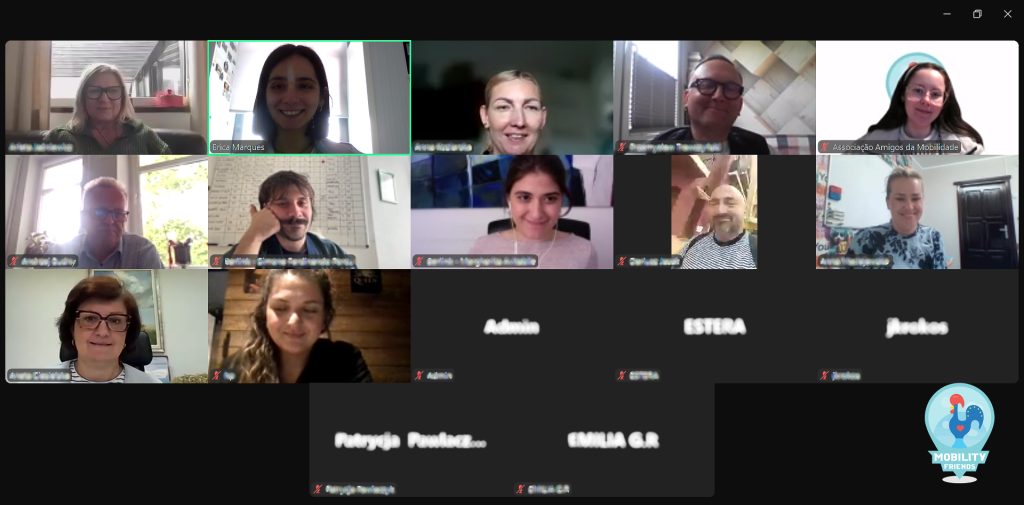
VET Study Visit
During the week of September 14 to 21, we took part in a study visit to explore the organisation of the German VET system and gain practical insights that could inspire improvements in vocational education and training.
The programme combined professional visits, seminars, and cultural experiences. It started on September 15 with a welcome session and an introductory seminar on the Dual System, providing participants with an overview of Germany’s vocational training approach.
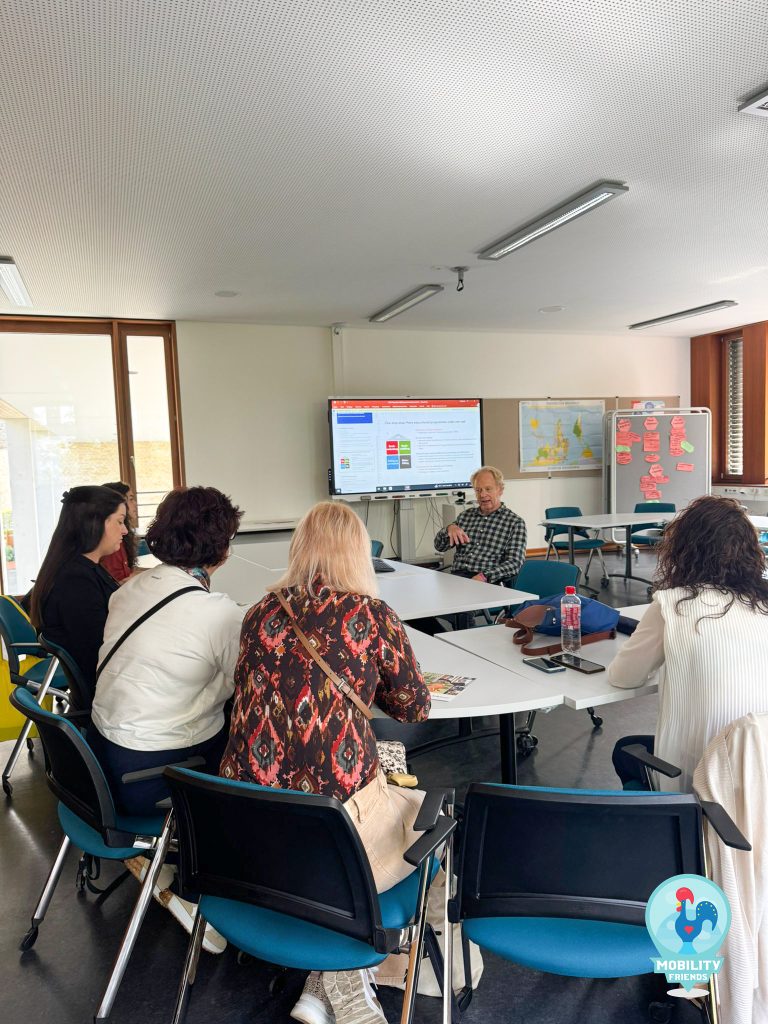
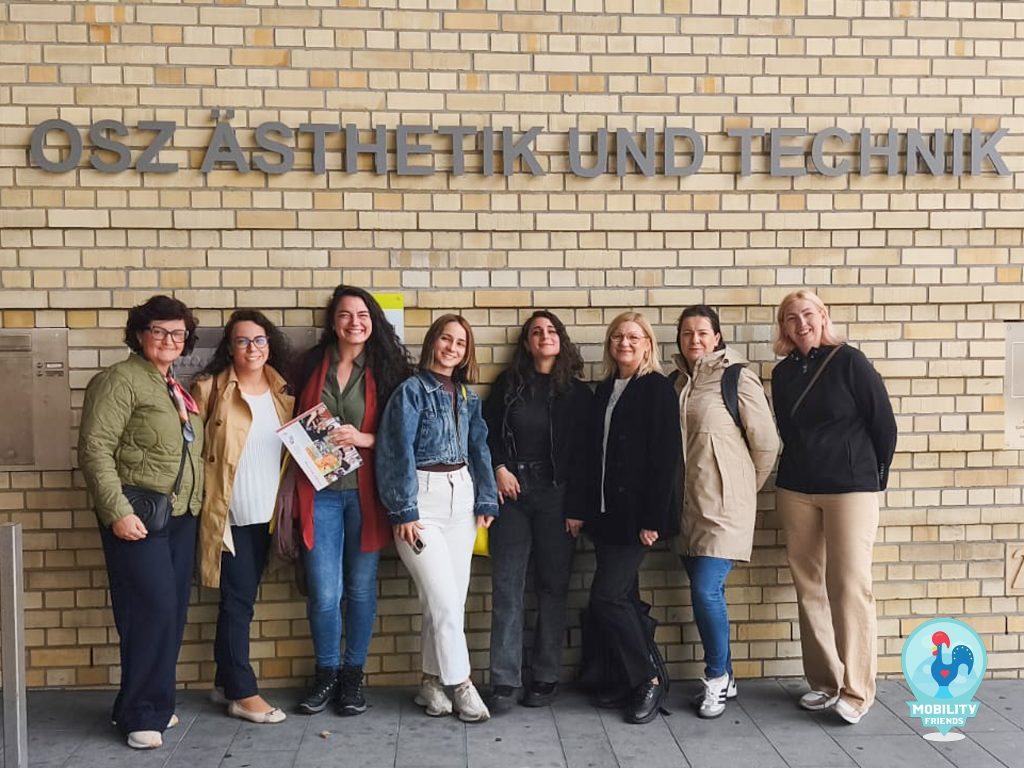
On September 16, the group visited OSZ Ästhetik und Technik VET School, observing vocational courses and learning about teaching and management practices. On September 17, participants visited the ITKAM – Italian Chamber of Commerce for Germany regional office to discuss international cooperation and business support for vocational training initiatives.
On September 18, a seminar on Career Counseling offered guidance on supporting students in planning their career paths. The final day, September 19, focused on project follow-up, activity evaluation, and certificate delivery.
Throughout the visit, participants reflected on how the strategies and practices observed in Germany could be adapted to their own contexts. The week offered not only practical knowledge but also a wider perspective on vocational education across Europe, equipping participants with new ideas to strengthen collaboration, improve VET practices, and drive innovation in their institutions.
